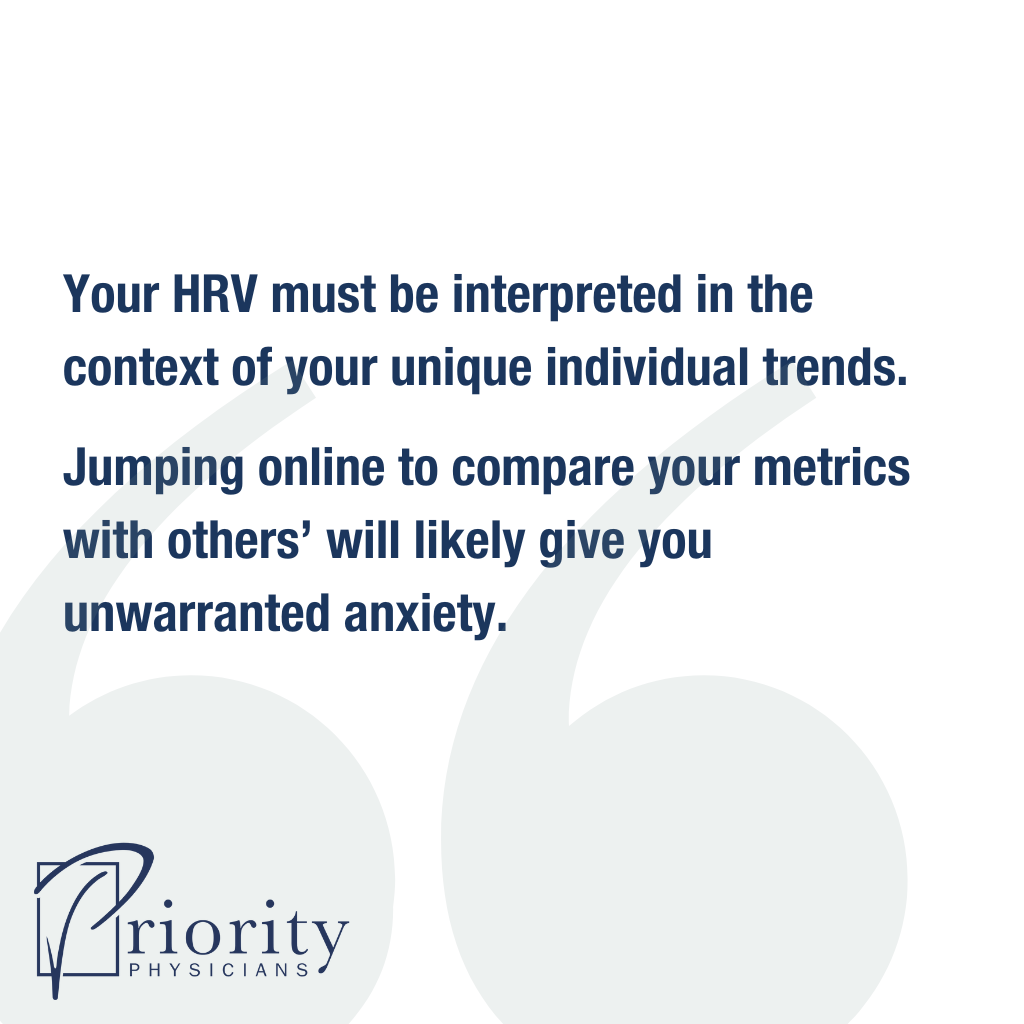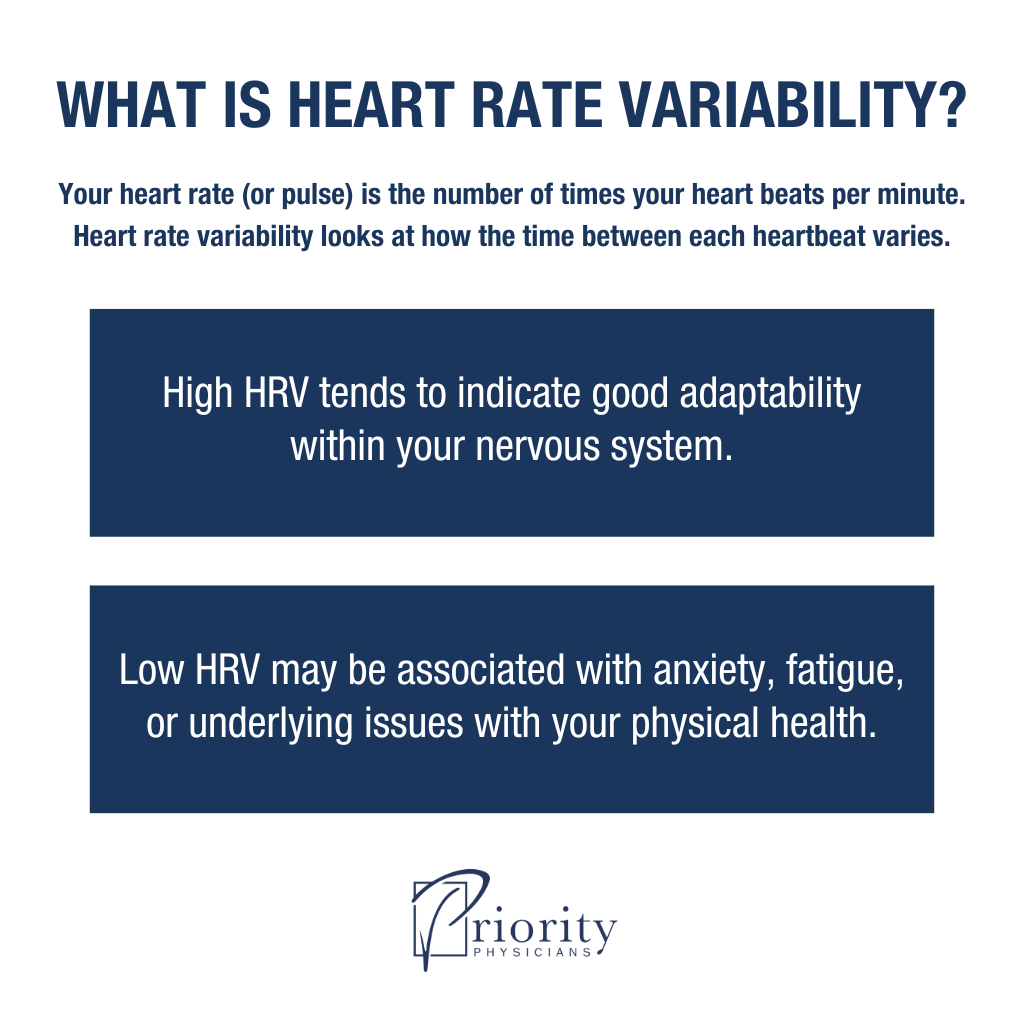It seems like everyone tracks their heart rate these days, from college-level athletes to Fitbit-sporting seniors. It’s not a bad idea. Your heart’s performance often reflects the quality of your overall health.
Fitness trackers and other wearable tech are windows into how well wearers’ hearts function. They’re excited to know what their data points mean and how they can optimize their heart health.
Naturally, my patients who wear fitness trackers have tons of questions for me. Lately, I’ve been asked, “Does it make sense to go deeper and look at heart rate variability (HRV)? Should I focus on how to measure HRV regularly?”

How to Measure HRV and Heart Rate
Your heart rate (or pulse) is the number of times your heart beats per minute. Heart rate variability looks at how the time between each heartbeat varies.
Are HRV and heart rate the most critical metrics to track with wearables? Perhaps not, unless you’re an athlete training for some sort of high-intensity activity.
Your HRV is as unique to you as your specific body temperature. Controlled by the autonomic nervous system, your HRV reflects your body’s ability to adapt to physical and emotional stress.
- High HRV tends to indicate good adaptability within your nervous system.
- Low HRV may be associated with anxiety, fatigue, or underlying issues with your physical health.
Many factors can affect HRV, including age, genetics, lifestyle, and overall fitness. Your HRV must be interpreted in the context of your unique individual trends. Jumping online to compare your metrics with others’ will likely only give you unwarranted anxiety.

A Physician’s Thoughts on Wearable Tech
As a concierge physician delivering personalized care, I’m in a unique position. My patients are proactive and prevention-focused. They want to use wearable tech to track their health, and they’re curious about the available trackers and data sets.
I love the idea of continuously tracking patient vital signs in real-time. But medicine is evidence-based, and many wearables, still in their infancy, have a lot to prove. So, while I’m optimistic about how these wearables can help my patients, my outlook is balanced with a bit of skepticism.
Wearable tech often develops faster than science. Your wearable device delivers a fairly accurate snapshot of your individual metrics and may also give your doctor some helpful insights. But wearables are not as accurate as medical-grade devices. There are still significant gaps between what wearables do achieve and what they have the potential to achieve.
Also, doctors don’t yet know how to best interpret the data points a tracker delivers, meaning they struggle to apply their insights from those data points to a specific patient’s healthcare.
So, is it important to know how to measure HRV? Not until medical scientists determine whether higher or lower HRV is the ideal goal (science has yet to come to a consensus). For now, they do agree on one thing: The answer depends on the individual.
Share Your Data With Your Doctor
Your Priority Physicians stay up-to-date on the benefits of wearable tech and are happy to review personalized data points showing your trends over time. We can help interpret data from health-focused devices like the Oura Ring or Whoop that track sleep patterns and physical activity levels.
While wearables can enhance your care, nothing replaces an essential in-person visit with a Priority Physician. We look forward to seeing you one-on-one.

